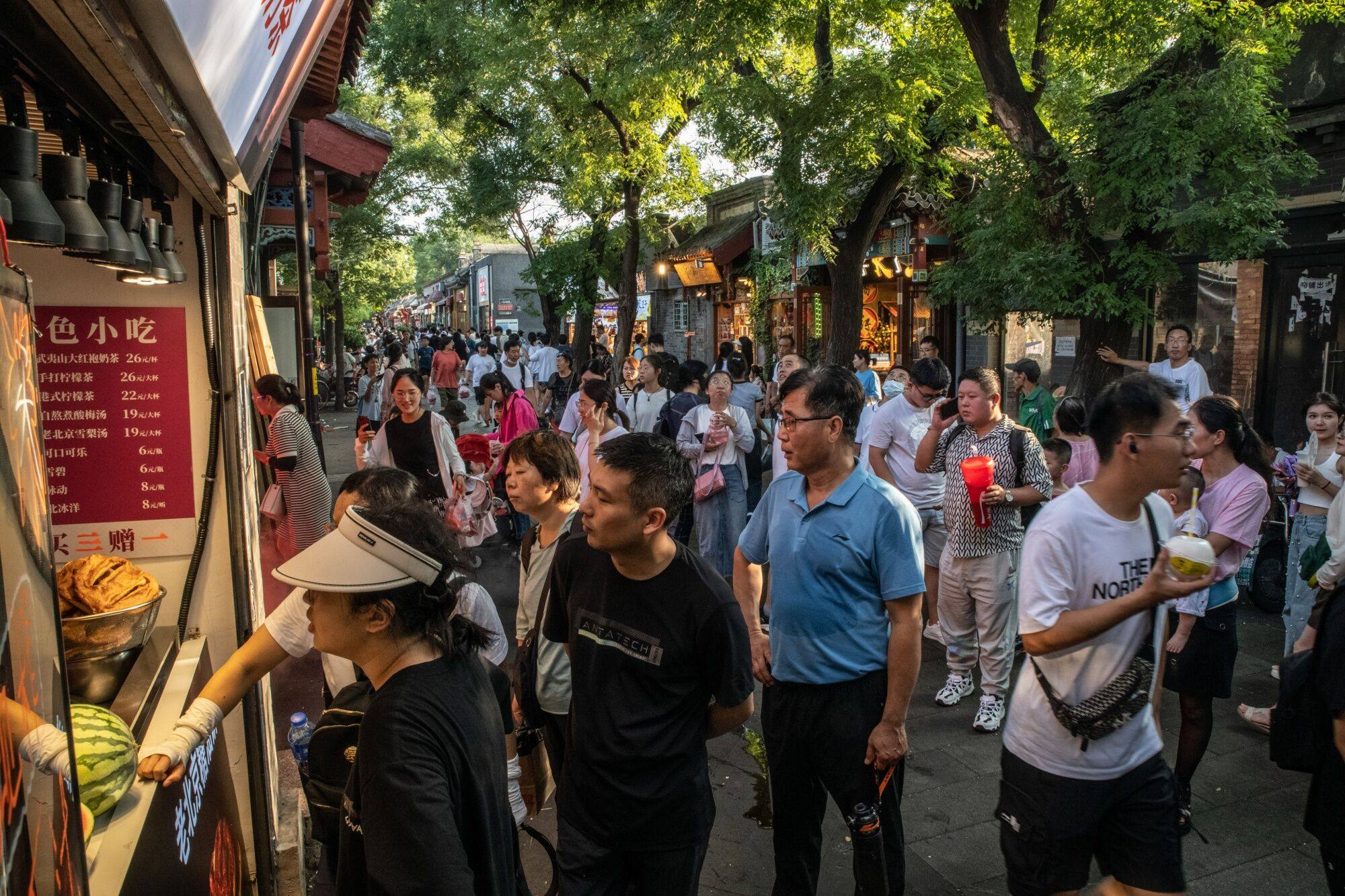
China’s tourism to grow faster than its GDP as people spend less on property, more on travel, Tongcheng executive says
- People in China have switched from buying big-ticket items like flats and cars to experiential consumption, says Tongcheng Travel CFO Fan Lei
- The Hong Kong-listed online travel agency posted a revenue of 2.8 billion yuan for the June quarter, up 80 per cent from the same period in 2019
China’s tourism industry will grow faster on average than the country’s gross domestic product (GDP) in the next decade, according to Fan Lei, chief financial officer of online agency Tongcheng Travel.
While the Chinese economy has slowed down and consumption in education, property and cars has weakened, people are still spending money – but in areas different from before, Fan said in interview with the South China Morning Post on Thursday.
“One of the most important [consumption] trends is that big-ticket and mid-market purchases are becoming more limited,” Fan said. “People are switching their spending habits from buying expensive products to paying for experience-type consumption.”
China’s economy grew by a worse-than-expected 6.3 per cent in the second quarter, largely buoyed by the low base induced by last year’s Covid-19 lockdowns. Property investments fell by 8.5 per cent year on year from January to July, after dropping 7.9 per cent in the first six months.

The Spring Festival in January, a traditional family holiday in China, sparked a travel resurgence, according to a report by the China Tourism Academy in February. For the whole year, domestic tourist traffic is expected to reach an estimated 4.5 billion, roughly 76 per cent of the levels in 2019, the report said.
Hong Kong-listed Tongcheng on Tuesday posted a revenue of 2.8 billion yuan (US$385 million) in the June quarter, an 80 per cent jump from the same period in 2019.
Monthly active users reached 280 million, up 41 per cent from the same period in 2022, and a rise of 53.5 per cent from the same period in 2019.
The surge in earnings was mostly attributed to domestic consumption, with overseas travel by Chinese tourists recovering only to 40 or 50 per cent [of pre-Covid levels], according to Fan. “Airline capacity hasn’t fully recovered … local services, such as guided tours and car rentals, also haven’t fully resumed,” he said.

International airline seat capacity only recovered to around 37 per cent of pre-Covid levels by April this year, according to a report by consultancy McKinsey in May.
“Some international airlines might be slow to restore capacity as fleets were retired during Covid-19 and airlines face a shortage of crew, particularly pilots,” the report said.
Still, mainland China is the world’s largest outbound travel market, both in terms of the number of trips and total spending, according to the report.
As travellers gradually return, Fan said Tongcheng plans to expand from serving only as a middleman to offering its own package tours, starting next year.
“We might acquire a company to help us do this, as it is an endeavour that requires professional knowledge,” he said.

